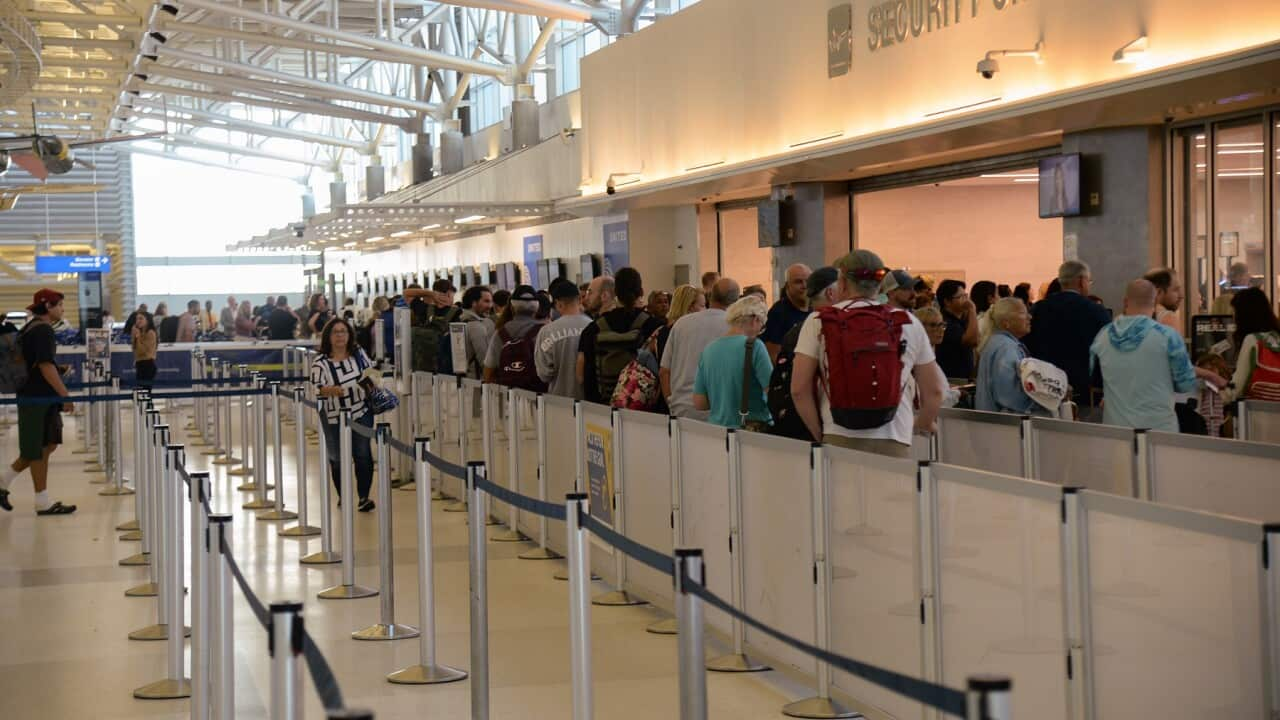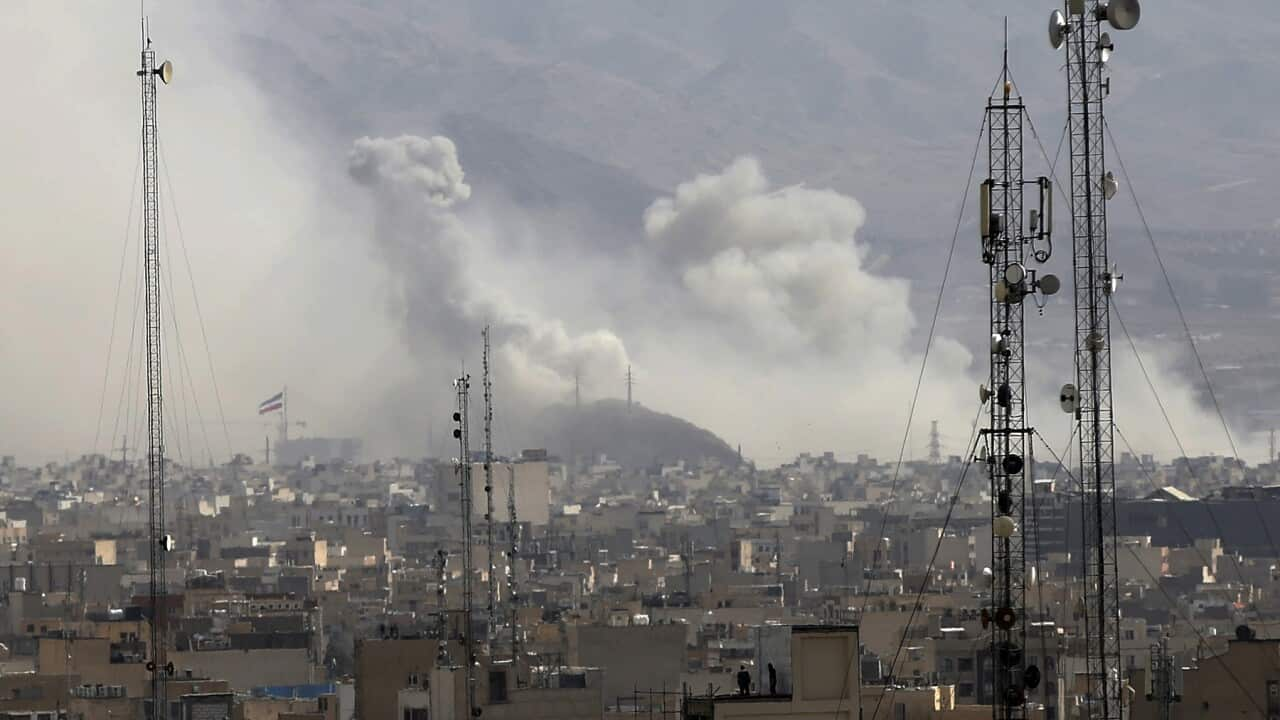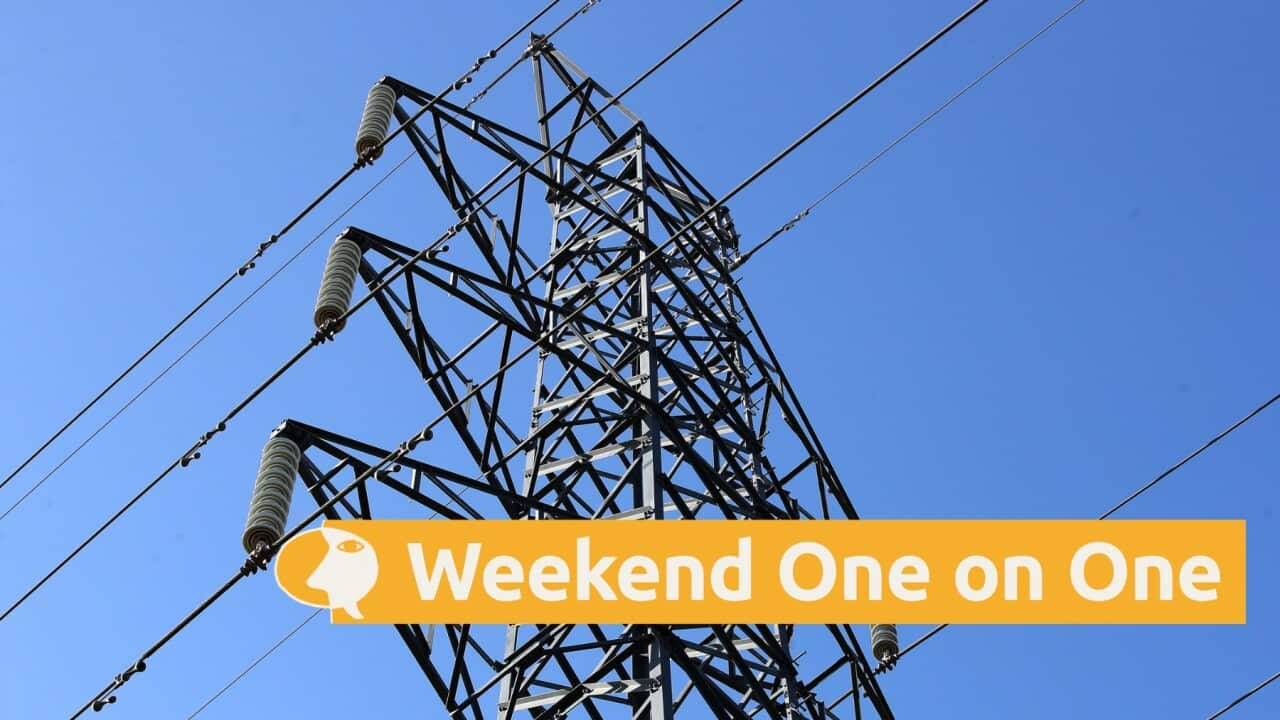Listen to Australian and world news, and follow trending topics with SBS News Podcasts.
TRANSCRIPT
“(It) feels harder this time because there's not a lot of resources out here. I'm going to food pantries to put food in our refrigerator and freezer. If I was receiving a paycheck, I wouldn't be put into a situation where I'm actually being put into debt.”
As a federal worker, Transportation Security Administration employee LaShanda Palmer is not being paid while the government is in shutdown.
Now officially the longest in history, the shutdown has passed its 40th day.
With pressure to end the shutdown mounting, flights, food assistance and federal workers are bearing the brunt.
US Treasury Secretary Scott Bessent says the shutdown is having major impacts on the economy.
“We've seen an impact on the economy from day one, but it's getting worse and worse. We had a fantastic economy under President Trump the past two quarters, and now there are estimates that the economic growth for this quarter could be cut by as much as half if the shutdown continues.”
The shutdown began when Republicans and Democrats could not agree to pass a bill funding government services after October 1, when the previous budget expired.
In the United States, Congress must approve spending plans to send to the president, who then signs them into law.
While Republicans currently control both chambers of Congress, they are short of the 60 Senate votes needed to pass the bill.
For Democrats, a few things need to change in the bill before they agree to pass it.
House Minority Leader Hakeem Jeffries, says Democrats are trying to stop Donald Trump's cuts to healthcare and food assistance programs.
“The American people understand that Republicans have ripped away Medicaid from 14 million people. The American people understand that Republicans enacted the largest cut to nutritional assistance in American history when they cut $186 billion from their one big ugly bill. And now Republicans have the nerve to admit before the American people that ripping away Snap benefits from 16 million children in this country and more than a million veterans is a pressure tactic designed to get the Congress to continue to gut the health care of the American people.”
During a government shutdown, federal workers, including postal workers, air traffic controllers, and other federal employees, don't receive pay.
According to the New York Times, around 700,000 people are currently working without pay.
With essential services like air traffic control required to continue operations, many more workers won't be paid until funding is restored.
On Sunday, more than 1,800 flights in the U-S were cancelled, and close to 5,700 were delayed.
With Thanksgiving around the corner, Transportation Secretary Sean Duffy says travel is going to be difficult.
“I think what's going to happen is you're going to have air travel slow to a trickle. As everyone wants to travel to see their families, I think we're going see air traffic controllers very few of them coming to work. Which means, yes, you'll have a few flights taken off and landing at our different airports across the country, but the thousands of flights that happen every day to move people around the country for this great American holiday, it's not going to happen. You're going to have massive disruption. I think a lot of angry Americans, and I think we have to be honest about where this is going. It doesn't get better. It gets worse until these air traffic controllers are going to be paid.”
For travellers like Kyra March, the delays are costing more than just time.
“I was coming from Tampa and that flight got delayed, delayed, delayed, then it was cancelled and then rebooked. And so I had to stay at a hotel and then came back this morning.”
Another key federal program impacted by the shutdown is the Supplemental Nutrition Assistance Program, also known as SNAP, or food stamps.
Nearly 42 million, or one in eight Americans rely on the program, which closed for the first time in its 60 year history on November 1.
While some funding has been restored to the program, states have been directed to only issue partial benefits.
Elizabeth McCarthy is the CEO of Community Foodbank of New Jersey.
She says demand at the food bank has surged.
“We've been hearing that from so many people that they never thought that they would be asking for food. And we don't want anyone to feel any shame - this is not their fault. We are here to help them and to just really say this is a time to reach out if you need help.”
With more and more people turning up, she worries that their funding will run out sooner than planned.[ "The problem is this is not going to be sustainable if this shutdown goes on for very long. I mean everything that we're spending right now is sort of over and above what we had budgeted for the year. And so it's just really important that we sort of figure out a way to get people the help they need.
In Washington, many former federal employees who lost their jobs during the major culls to the workforce under Trump's administration, are now being forced to rely on such programs.
Former US Institute of Peace Employee Thea Price says life has never been harder.
“We’ve all -- I've been working since I was 15 years old. Right? For decades, I've been paying into a system. And then to have those services that for the first time that I actually need them to then be halted or denied, arbitrarily, is -- feels like an additional hit on top of one thing after the other after the other. That's making pretty much life impossible.”
While many federal employees go without pay, President Donald Trump has reprogrammed billions in funding so that certain personnel are being paid.
These include active-duty military, federal law enforcement officers and immigration agents, who typically work without pay during government shutdowns.
As the shutdown reached its 40th day, Democrats and Republicans held a rare Sunday session in an attempt to reach a deal.
TSA employee LaShanda Palmer says people can't continue living like this.
“This is putting us in situations as government employees that we should never be put in. Disheartening. It's disheartening. It's a lot. And to Washington D.C., everybody's supposed to take in the people they represent. They know what is it exactly. And it's time to stop doing the blame game. Stop doing the blame game, get in the room, and do what you guys need to do.”













